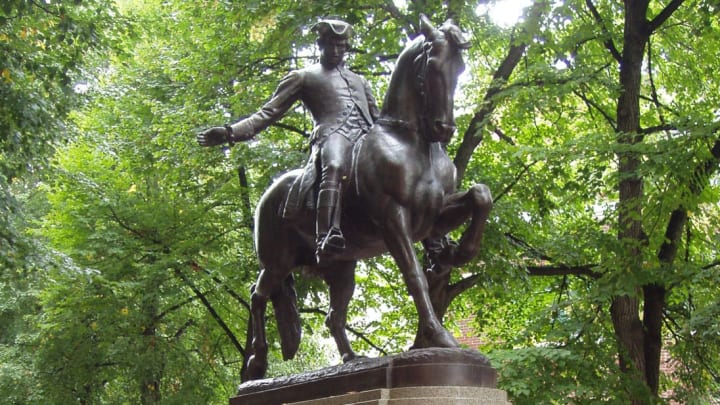Listen, my children, and you shall hear, of the brick-lined privy of Paul Revere … perhaps. Archaeologists in Boston may have unearthed the outhouse of the famed figure, CBS Boston reports.
Recent excavations at the site of Revere's home, which was constructed in Boston's North End in 1711, have revealed a 4-foot-by-6-foot rectangular structure made from bricks. Since it was too small to be a house or shed foundation, it was likely once used as a privy.
One if by land and 2 if by sea...... https://t.co/rHKUBcIrUr
— Bob Marsh (@bobv3) September 29, 2017
Eighteenth-century colonial settlers built these early restrooms by digging a large pit and lining it with bricks and clay, so their unsavory contents wouldn't contaminate wells. Finds like these often serve as (gross) time capsules of sorts, as people of the colonial era frequently disposed of household waste and other unwanted items by simply tossing them into their toilets.
In addition to uncovering artifacts from the prospective privy (so far, they've found a beer stein handle, animal teeth, pottery fragments, and some coal pieces), experts hope to examine, well, other types of waste, which could provide new insights into the diets of settlers. We "can get seeds from what they were eating," city archaeologist Joe Bagley told WBZ NewsRadio 1030. "We can find parasites, find out what their health was."
That said, archaeologists still have to verify that the structure in question is, indeed, an 18th-century toilet before going forward with these plans. To do so, they'll dig down to it at depths of up to 6 feet (a 1650 law in Boston required colonists to adhere to this privy depth, although not everyone followed regulations), and see if it has "nightsoils," which Bagley described as "smelly, dark soils which are now composted and not that bad, but they might have a stench still, a little bit.” Hopefully its stink will be mitigated by plenty of archaeological treasures.
